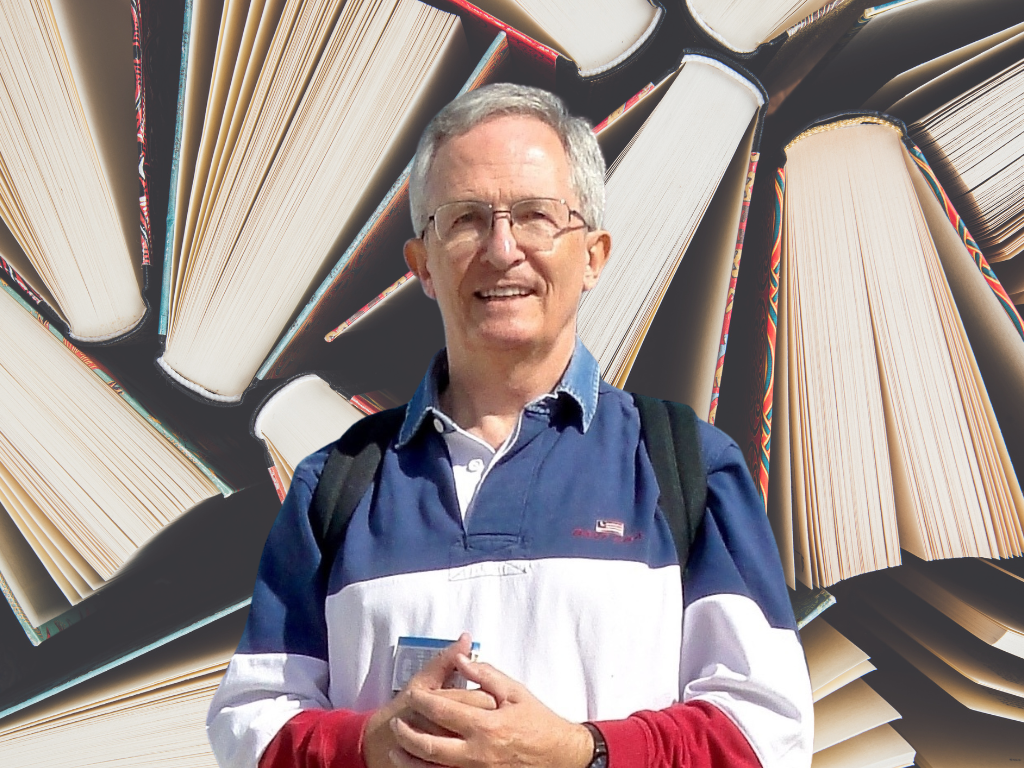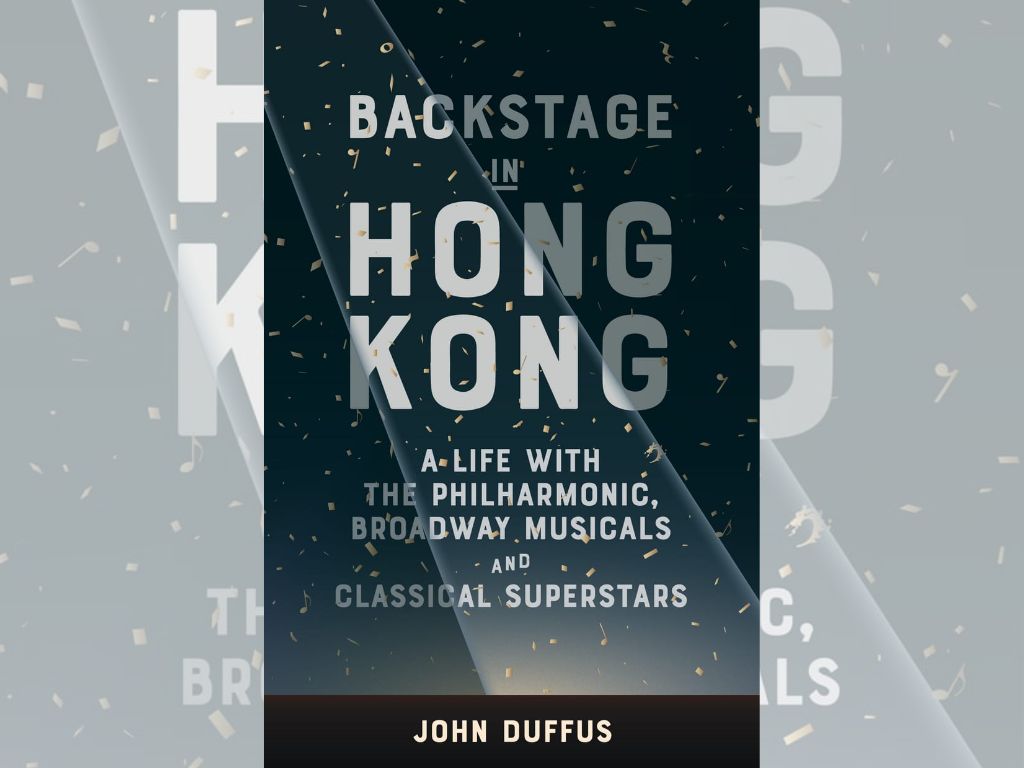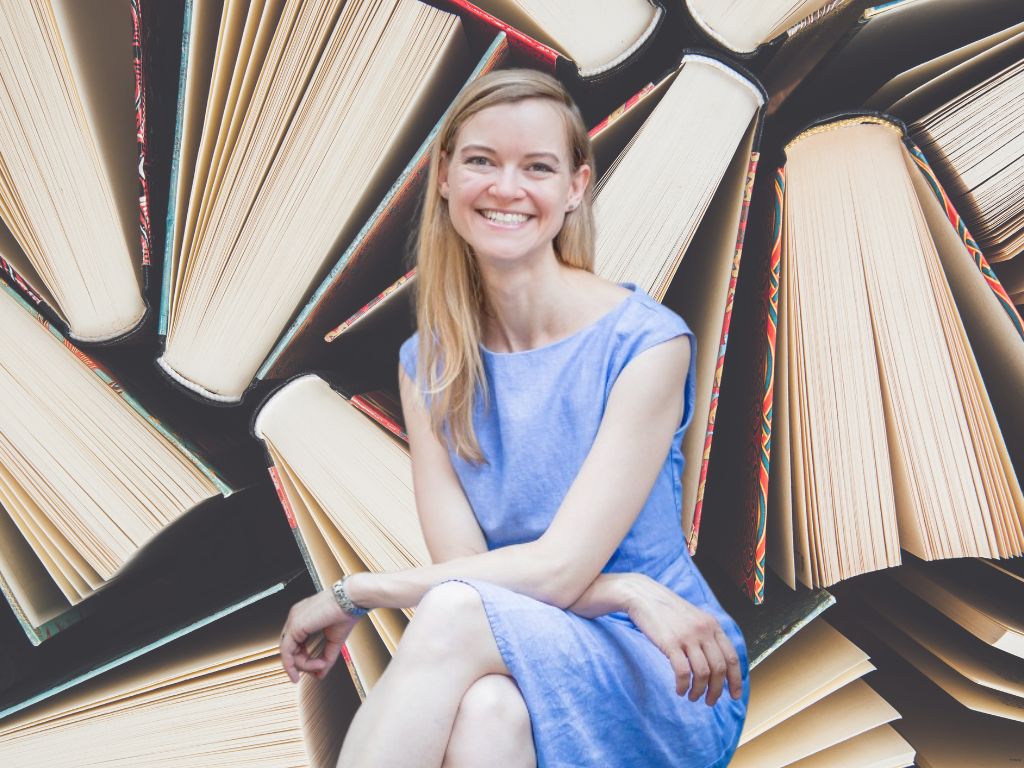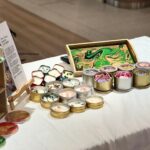Share

Music graduate John Duffus moved to Hong Kong in 1979 to take up the role of General Manager of the Hong Kong Philharmonic Orchestra. His latest book, Backstage in Hong Kong: A life with the Philharmonic, Broadway Musicals and Classical Superstars is his autobiography.
How did you become a writer?
I never intended to become a writer as such. When I was about to leave school for university in 1964, I always hoped that I would find a career in the international management of music and the arts. Completing a First Class Honours Music degree at Aberdeen University, my colleagues were surprised when I applied for only one job – as a graduate trainee with the BBC in London. Even I was surprised when I gained a place on its excellent 3-month training course and started work at Broadcasting House. Only I had hoped I could quickly transfer to television arts programming. Instead I was stuck in News & Current Affairs in radio.
I quickly managed to find a new job with the then young Scottish Opera in Glasgow. It was a wonderful company to work for with extremely high artistic standards. One of my dear friends was the Director of Public Relations. Working sometimes alongside him I learned a lot about writing, condensing, editing and publishing in general. Although only large opera programme books, it was an invaluable start.
In early 1979 I moved to become General Manager of the Hong Kong Philharmonic Orchestra. Here again I was involved almost weekly with writing, now including press releases in addition to the other writing activities. I was also asked to write articles for both the International Herald Tribune (now the International New York Times) and occasionally the South China Morning Post. Leaving the orchestra after eight very fulfilling years, I worked with major companies like the Artists’ Division of Mark H. McCormack’s worldwide International Management Group of companies and as Asian Director of Andrew Lloyd Webber’s company, in addition to founding two companies which I ran up until 2017.
During all this time I had the joy of working with many top international musicians and events. Artists like Luciano Pavarotti, Plácido Domingo, José Carreras, Dame Kiri Te Kanawa, Jessye Norman, Sir James Galway, Teresa Berganza, Christa Ludwig, Isaac Stern, Itzhak Perlman, Pinchas Zukerman, Vladimir Askhenazy, Yo-Yo Ma and Joshua Bell among so many others. Of the events, the most spectacular was organising a Three Tenors concert in the glorious setting of Beijing’s Forbidden City in June 2001.
So although for some who contribute to this Q&A, what I have just written would be their second career; for me it was the primary one.
What would you be doing otherwise?
Writing books only came on to my horizon in 2014. So many friends and colleagues had suggested I must have in my head a library full of fascinating anecdotes about those I had worked with during my career. They persuaded me that these should be written down before I started to forget them. So whenever I had spare time at airports, waiting at rehearsals or wherever, I began to put anecdotes in to a computer file as and when I recalled them.
It was never my intention to put this into book form, merely to circulate them to friends after I decided to retire. In the summer of 2015, however, I took a dear old friend for lunch on a visit to Edinburgh. Conrad Wilson had been the Music Critic of the main newspaper in Scotland, The Scotsman, as well as being the author of a dozen books. During part of the conversation I mentioned my anecdotes file. He suggested this could make the basis of a good autobiography. He asked about it and how many words the file presently had. When I told him “200,000 and counting” he almost spilled his Pinot Grigio! No book should be more than about 90,000 words, he advised me.
As lunch progressed, we discussed the different elements in my file. First there would be my early years with Scottish Opera. Then my time working with the big international ‘names’ like Pavarotti and Te Kanawa. And then my other activities in Hong Kong starting with the Hong Kong Philharmonic. He was particularly interested in my writing about my time at Scottish Opera as no one with experience of actually working for the company had written about it from within.
The more I thought about it, the more I realised how much sense this made. And so I decided to start pulling together first the details of my time at Scottish Opera since it would be celebrating its 60th anniversary in 2022. Then the book which I though most people might wish to read – one about Pavarotti and other big “egos” and the disasters which frequently occurred in planning their concerts. Finally, the third about the rest of my time in Hong Kong taking in such items as my time at the Philharmonic which was celebrating its 50th anniversary season in 2024, why the Hong Kong Cultural Centre is a near disaster, my years working on Lloyd Webber’s musicals and ending with my time in the planning stage for the West Kowloon Cultural District which, sadly, I believe has been equally badly executed.

Of the characters you have created, which is your favourite and why?
I suspect most people would expect me to say that of those I have written about, artists like Pavarotti and Te Kanawa would be my favourites. Fascinating though they and so many others were, I would mention two whom Hong Kong readers may not remember so well. First is the late American virtuoso pianist Earl Wild. I presented him three times in Hong Kong. He was not only one of the greatest virtuoso pianists, he had started his career in 1932 aged 16 as Resident Pianist with the Pittsburgh Orchestra. There he soon met and became good friends with the composer/piano virtuoso Sergei Rachmaninoff and a host of other great pianists. Not only were his remembrances utterly fascinating, he was also one of the funniest men on the concert circuit. I loved his company both in Hong Kong and when I occasionally visited him at his New York apartment. A big bear of a man with a shock of white hair, he would amble on to the concert platform, sit down, adjust the piano stool and then with hardly any body movement other than in his arms and hands, seemingly effortlessly play the most fiendishly difficult Chopin, Liszt and other virtuoso works.
The other was the greatest double bass soloist for four decades from the mid-1960s, Gary Karr. I presented him twice in Hong Kong and write a lot about him in my Hong Kong book. He had come to prominence when he was featured as a soloist on the conductor Leonard Bernstein’s now legendary televised educational concerts with the New York Philharmonic. The bass is a somewhat ungainly instrument but Gary literally made it sing. He told me once when staying with him at his Vancouver Island home that one of his most valued teachers was not a fellow bass player but the mezzo-soprano, Jenny Tourel. “She taught me how to make the bass sing,” he told me. Like Earl, he also possesses a wonderful sense of humour and is still enjoying life in retirement working frequently with young bass players.
Tell us about your writing method. Is there a secret?
There really is no secret whatever to my writing method. I first had to work out which anecdotes I would include, find ways to expand their context and link them in a book format, and then end each chapter with a paragraph leaving the reader in some suspense as to what might be about to happen next. I do think I have one fault and that is I sometimes write too much at length!
Which author, alive or dead, would you most like to meet?
I have read many books throughout my long life. I have particularly enjoyed long novels, including many set in my second home of Asia, sometimes in multi-parts like Paul Scott’s masterful The Raj Quartet. I loved Vikram Seth’s gloriously rich An Indian Boy and Donna Tart’s The Goldfinch. My interest in Japan which was almost zero when I arrived in Asia was spiked by James Clavell’s Shogun. And more recently by Alex Kerr’s superb Lost Japan. Now Japan is one of my most favourite countries! But I think the author I would like most to meet is John Cornwell, whose two books about the Papacy kept me utterly transfixed – Hitler’s Pope and A Thief in the Night.
Tell us about your favourite bookshop in the world.
Ever since Amazon started retailing books I really have no favourite bookshop, sadly. I have lived much too long outside the UK and there is a shortage of English bookshops. On my annual visits back to the UK I was usually much too busy working. Before moving to Asia and occasionally when in London I enjoyed rummaging through Foyles in Charing Cross Road.
What advice would you give your younger, writer self?
Unquestionably I would tell myself “Beg, borrow or steal an editor!” I had tried to interest several friends who had written books and been involved in writing about the arts and entertainment to work with me. Sadly I was always up against quite tight deadlines and only one had sufficient time to spare in order to do the job to his high standards.
Do you see yourself writing another book and if, so, what would this be about?
I have actually finished a fourth book and am presently trying to interest literary agents. It could not be more different from the three I have had published so far for it has nothing whatever to do with music or the arts. Through a friend, I met a young man born into desperate poverty in Myanmar’s Shan State at the start of the new millennium. The book was written basically at his request as he never wants to forget the horrors he experienced during his childhood and teens. And I do mean “horrors”. After working with him on his story, I realised that readers would not fully understand it unless I added in sections dealing with the history of that blighted country. So I had to immerse myself in a great deal of research which, although in itself fascinating, helps to explain why the country has been in a constant state of civil war for many decades and why not everything is as we think it actually is. So much is happening in that country under the radar, as it were, that the world really needs to pay much more attention.
Share
About the Author

Bookish Everybody
Books and reading are too often on the periphery. Enter: Bookish Everybody, a one-stop community of book enthusiasts to read or write reviews, join read-alongs, buy/sell/give books and join our competitions to win books: www.bookisheverybody.com.
NEW STORIES
Stay Up To Date
Want the latest insights and fresh content delivered straight to your inbox? Subscribe to our newsletter and stay updated with our exclusive content!










